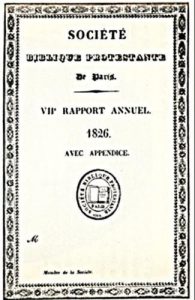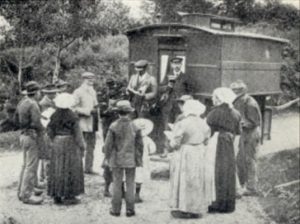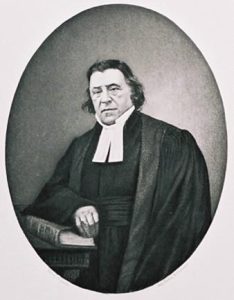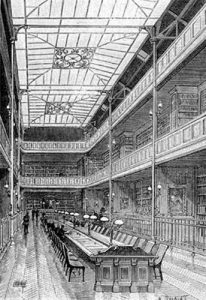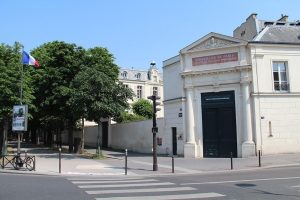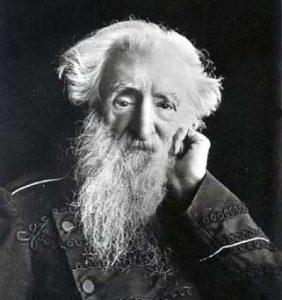To facilitate Bible reading
Once Protestant church worship was re-established, the problem of making Bible reading accessible to all believers arose : several societies, each with slightly different aims, were created to provide correctly translated Bibles at reasonable cost and in large enough numbers. They were often helped by Bible Societies already established in countries of Protestant tradition, either by means of subsidies (from Germany, England and Scotland) or by having easy access to translations (from Switzerland).
The first Bible Society (the Leo Foundation) was created in 1811 under the initiative of a Saxon theologian who named the Society after himself. It was approved of by the Minister for Church Worship, Count Bigot de Préameneu.
In 1818, the Protestant Bible Society of Paris was founded by the Marquis de Jaucourt. Some 643 auxiliary societies were then created, the overall aim being to bring together unite all Protestants without any exclusion whatsoever and without any dogmatic interference. However, in order to grow, it needed the help of the British and Foreign Bible Society, which kept a close watch on its activities (for example it did not want the Bibles to contain the Apocrypha). Bible translation was a subject of lively discussion between the Bible Society of Paris and its benefactor : two translations were rivalling, one by Martin and the other by Ostervald. Discussion likewise centred on the kind of reading public they were to reach, and whether the translation should be made accessible to non-Protestants. Besides, as early as 1820, the British and Foreign Bible Society settled in France and led its own campaign to reach Catholics and free thinkers. When in 1864 ongoing dispute with the English benefactor resulted in the creation of the French Bible Society, the latter chose to work within the framework of the Reformed Church and in French-speaking circles of Belgium and Switzerland. It began working in a thoroughly organised way. First of all, it undertook to provide trustworthy translations : after the Ostervald and Martin translations, the Perret-Gentil translation of the Old Testament appeared in 1847 and that of Louis Segond in 1874. The translation of the Synod Bible was begun in 1883. These translations benefited from the progress of the exegesis. Moreover, the French Bible Society was active not only throughout the parishes but also within family circles, hospitals and hostels, as well as a less costly operation amongst the military : that of distributing copies of the New Testament. It also acted as a historical society gathering rare copies of sixteenth century translations in one central place (54, Saints-Pères Street – see the “Society for the History of French Protestantism”). A quarterly bulletin was published giving accounts of the Society’s initiatives and growth and aiming at collecting funds and subsidies.
In a addition to their main activity of distributing Bibles, the Bible Societies had related activities such as the Aids to facilitate Bible reading. The lattermade easels where open copies of the Bible could be displayed and draw the attention of passers-by.
Throughout the nineteenth century, over 10 million copies were distributed at low cost and without profit for the publishing companies. Four fifths of these Bibles were published by the British and Foreign Bible Society.
Such names as the Marquis de Jaucourt, Baron Ferdinand de Schickler, François Guizot, Victor de Pressensé, pastor Montandon were closely associated to these societies.
Bible Societies still exist today but bear different names.
An anecdote
Just before the Second World War, in the Tarn area, Paul Ramadier, the mayor of a little town, decided soon after his election to close down all the town’s Catholic schools. The bishop retaliated deciding that the parish would be deprived of its priest. Paul Ramadier asked a pastor friend to give an active hand to the parish. The latter accepted on the condition that Bibles be given to all parishioners ; this was done. As time went by, the bishop was replaced and a priest was sent back to the parish. When the parish was handed over to the priest, it was agreed to keep the Bibles. The pastor was called André de Robert. The priest was François Marty, future archbishop of Paris. He did not stay long in the town and when he left, the Bibles disappeared.

